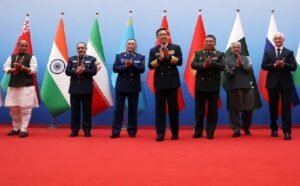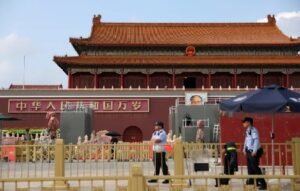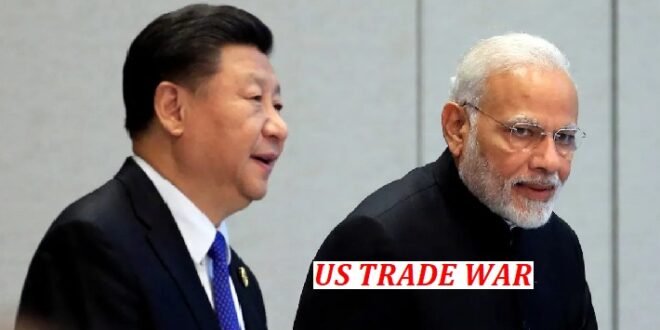02-09-2025
BEIJING/ NEW DELHI: Russian President Vladimir Putin and Indian Prime Minister Narendra Modi are among the more than 20 world leaders attending the Shanghai Cooperation Organization summit, which is now the world’s largest regional grouping by population.
 The Beijing-backed bloc will convene on Sunday and Monday in the northern Chinese city of Tianjin, bringing together a diverse range of power brokers from across Asia, Europe and the Middle East.
The Beijing-backed bloc will convene on Sunday and Monday in the northern Chinese city of Tianjin, bringing together a diverse range of power brokers from across Asia, Europe and the Middle East.
Founded by China, Russia, Kazakhstan, Kyrgyzstan, Tajikistan and Uzbekistan in 2001, the summit has shifted focus over the past two decades from Central Asian concerns to global matters.
More significantly, the SCO has become an essential part of China’s “parallel international governance architecture”, said Eric Olander, editor-in-chief of the China-Global South Project.
As Beijing assumes the mantle of the world’s second-largest superpower, the SCO has created spaces for dialogue and cooperation outside “the US-led international system”, Olander told media.
While the summit in Tianjin is largely symbolic, it is a valuable chance to bring together global leaders and bureaucrats in a forum where they can share “common grievances”, Olander said.
With the gathering set to be overshadowed by United States President Donald Trump’s trade war against much of the world including many traditional allies of Washington attendees are likely to have even more common ground.
Guests range from Putin, who is wanted for war crimes by the International Criminal Court, to Belarus’s authoritarian leader Alexander Lukashenko and the likes of United Nations Secretary-General Antonio Guterres.
Many of the attendees also have long-running rivalries and border disputes, such as India with Pakistan, India with China, Saudi Arabia with Iran, and Central Asia with both China and Russia.
 “There are complex dynamics at play here,” Olander said.
“There are complex dynamics at play here,” Olander said.
“Underneath the happy family photo is a lot of looking over shoulders,” he said.
The SCO has expanded its membership in recent years to include such political heavyweights as India, Pakistan, Iran and Belarus as full members, with Afghanistan and Mongolia joining as observers.
Official “dialogue partners” have also grown to 14 countries, including the United Arab Emirates, Saudi Arabia, Turkiye, Qatar, Cambodia, Myanmar and Sri Lanka.
The summit will also notably feature Southeast Asia, a region that Olander likened to the “swing states” in the great power competition between the US and China.
Five heads of state will attend from the region, including Malaysia’s Anwar Ibrahim and Indonesia’s Prabowo Subianto, as well as ASEAN Secretary-General Kao Kim Hourn.
Observers will be closely watching the dynamics between Chinese President Xi Jinping and India’s Modi, who have not met in seven years, said Claus Soong, an analyst at Germany’s Mercator Institute for China Studies who specializes in China’s global strategy. India has traditionally been an ally of Washington, but it was hit this week by Trump’s 50 percent tariffs as punishment for its ongoing purchase of Russian oil.
The White House says India’s trade is helping to keep Russia’s economy afloat despite international sanctions, and with it, Russia’s war on Ukraine. (Int’l Monitoring Desk)
 Pressmediaofindia
Pressmediaofindia




